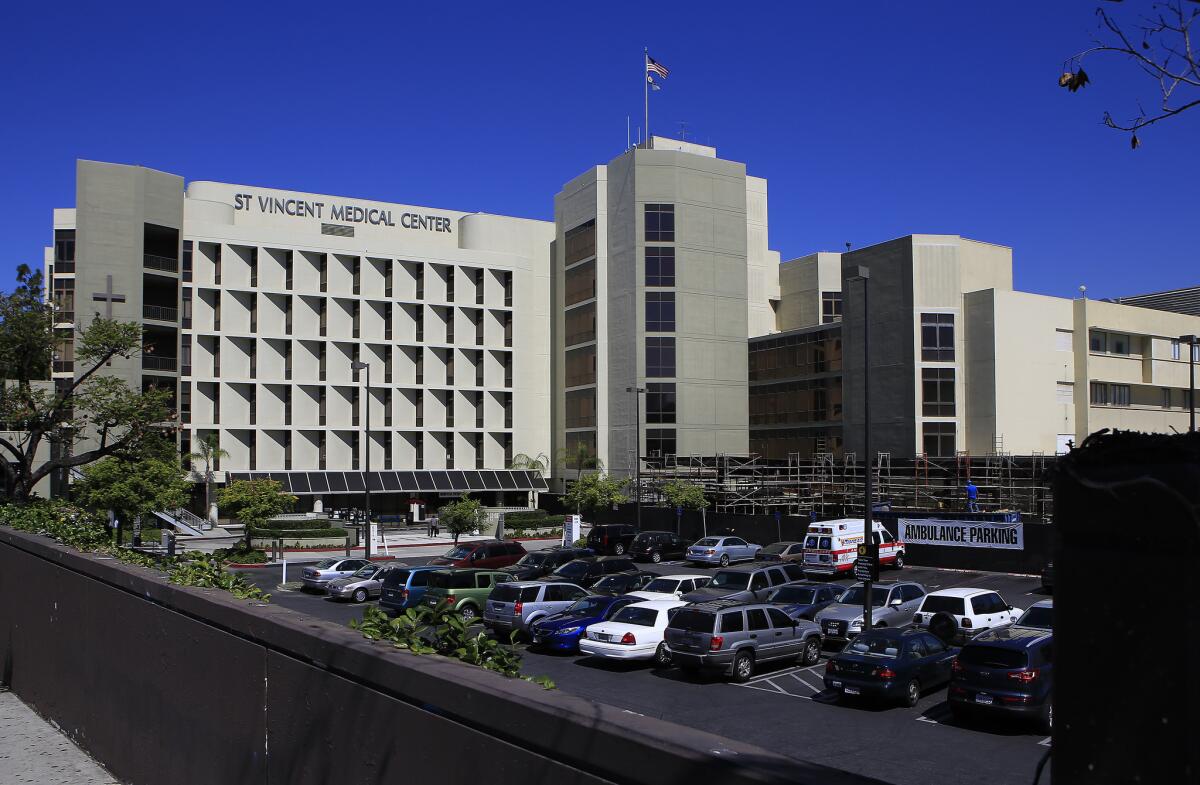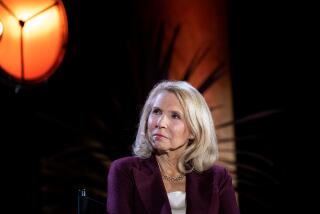Prime Healthcare founder defends decision not to buy 6 struggling Catholic hospitals

The founder of Prime Healthcare Services Inc. defended his decision to pull out of a deal to buy six Catholic hospitals, saying critics were wrong to suggest that he placed profit over patients.
“It’s the most callous and irresponsible statement,” said Prem Reddy, a cardiologist who founded the Ontario-based hospital chain in 2001. “It has nothing to do with profits.”
For more than a year, Reddy and other executives at Prime had worked on the deal with Daughters of Charity Health System, which owns the six financially struggling hospitals, including two in L.A. County.
But on Tuesday, the deal collapsed when Reddy walked away, saying that Atty. Gen. Kamala D. Harris had put conditions on the sale that made it financially impossible.
Harris had lashed out at Prime, saying that by walking away, the company was confirming longtime concerns “that the continuity of vital healthcare services in these communities is not its priority.”
Reddy said in an interview with The Times on Wednesday that Harris was wrong about the company’s intentions. He pointed out that Prime now has 34 hospitals and has never closed a hospital it has purchased.
“This is about delivering quality care,” he said, “that is sustainable in these communities.”
Reddy said he was still interested in buying the six hospitals – especially if they declared bankruptcy.
Daughters Chief Executive Robert Issai has said that bankruptcy is among the options that he and the hospitals’ board of directors are now considering.
Bankruptcy proceedings force companies to reduce costs, often including workers’ salaries and benefits. Services and staff might be sharply cut.
But Issai dismissed Reddy’s continued interest in the hospitals on Wednesday.
“They had an opportunity to save the hospitals,” Issai said.
Daughters of Charity, which specializes in providing medical care to the poor, has said it is losing about $10 million a month. In 2013, its board decided that selling the six nonprofit hospitals was the best way to avoid bankruptcy.
Issai said the board had carefully vetted Prime.
“We both worked hard to get approval from the attorney general,” Issai said.
Reddy’s sudden decision to back out “came very much as a surprise,” he added.
In California and other states, the sale of a nonprofit hospital must be approved by the attorney general.
On Feb. 20, Harris approved the proposed deal but said she would require the company to keep all of the hospitals open for 10 years.
Reddy said Harris’ requirements far exceeded those he had encountered when he purchased nonprofit hospitals in several other states.
Reddy estimates that if he had been forced to continue the hospitals’ current level of service for 10 years as the attorney general required, the cumulative losses would have been $3 billion.
“My hope is that she will reconsider,” Reddy said of Harris’ decision.
Daughters owns St. Vincent Medical Center in downtown L.A. and St. Francis Medical Center in Lynwood. Its Northern California hospitals include: O’Connor Hospital in San Jose, St. Louise Regional Hospital in Gilroy, Seton Medical Center in Daly City and Seton Coastside in Moss Beach, near Half Moon Bay.
Follow me on Twitter @MelodyPetersen
More to Read
Inside the business of entertainment
The Wide Shot brings you news, analysis and insights on everything from streaming wars to production — and what it all means for the future.
You may occasionally receive promotional content from the Los Angeles Times.











